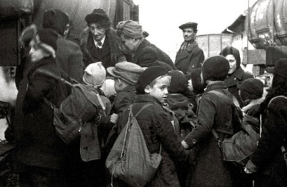
Slowly but surely throughout the 17th century, the peISecution and prosecution of witches in Europe slowed: declining steadily, prosecution rates reached little more than a trickle, before finally the practice of trying witches was stamped out altogether. Although this happened at differing rates across Europe, as a general rule by the second half of the century, witch trials had long since been on the wane. Exceptions stand out as being against the rule, such as the brief reswgence of witch trials in England during the Civil War period under Matthew Hopkins, the later execution of the Bideford Witches in 1682, and, further afield, the Salem trials in the last decade of the century. Such cases were remarkable due to their scarcity, as a combination of causes brought about the end of a period of persecution that saw an estimated 60,000 deaths.
Despite, or perhaps because of, the fervour of persecution against witches, scepticism regarding the existence of witches and witchcraft had been present from the outset of the witch trial period in Europe. As early as the 16th century, a small yet vocal minority picked up their pens to counteract the calls for blood and panic: these learned writers expressed their disagreement in varying degrees of dismay, outrage and disquiet, sowing the seeds for the eventual discontinuation of prosecuting those accused of






